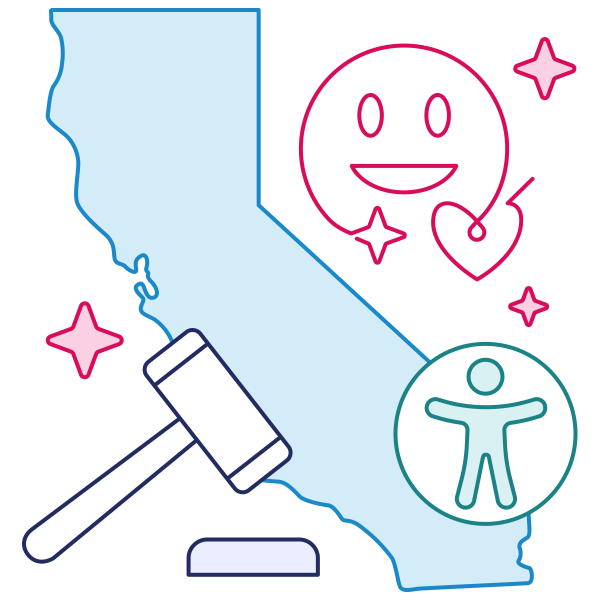Web Accessibility
Legislation in California
See how your website stacks up compared to web accessibility legislation in California.

An Overview of Legislation in California
Beyond the federal ADA and Section 508 regulations, California has some of the strictest legislation when it comes to web accessibility, and there are two main pieces of legislation that dictate compliance. The first state-level legislation is the California Assembly Bill 434. Introduced in 2019, it mandates all state agencies comply with WCAG 2.0 AA. In addition to this legislation, the state has also enacted the California Civil Code §51, more commonly known as the Unruh Civil Rights Act. The Unruh Act applies to businesses, and most notably offers monetary relief to individual that have been subject to discrimination.
Disclaimer
The information in this article is made available by Acquia Inc. and/or its subsidiaries and affiliates and is for informational purposes only so as to provide its customers with a general understanding of current legal developments. It should not be construed as providing specific legal advice, and you acknowledge that no attorney/client relationship exists between you or any third party and Acquia Inc. and/or its subsidiaries and affiliates. This article should not be used as a substitute for competent legal advice from a licensed lawyer in your jurisdiction.
What You Need To Know About Web Accessibility in California
What is California Assembly Bill 434?
Signed into law in 2017, the California Assembly Bill 434 came into effect on July 1, 2019. It mandates that all state agencies and entities ensure that their websites live up to web content accessibility guidelines (WCAG) standards 2.0, level AA.
Are there any other requirements related to the California Assembly Bill 434? Yes, it is required the Director or Chief Information Officers of state agencies biennially publish a signed web accessibility certificate stating that they are in compliance with the specified version.
What is the Unruh Act?
The Unruh Civil Rights Act prohibits businesses from discriminating against individuals, and this includes ensuring that their websites are inclusive and accessible for all.
Who does it apply to?
The law applies to all businesses and establishments in California. In certain interpretations, the law has also been applied to businesses and establishments located in other states, but whose services are available to California residents via their website.
What are the penalties for non-conformance?
Under the Unruh Act, plaintiffs are eligible entitled to $4,000 in monetary relief for each time they are subject to discrimination. In the case of website accessibility, that would be in relation to each time the plaintiff visits a website and faces a barrier to accessing information or completing an online service, for example making an online order or purchase.
A Few Landmark Website Accessibility Cases in California
United States
California Wineries
In 2022, California wineries and vineyards were hit with lawsuits based on a failure to comply with the Americans with Disabilities Act (ADA) specifically relating to the accessibility of their websites.
United States
Gomez v. Tribecca, Inc.
In this case a Central California judge found that plaintiff did not have standing for the website accessibility lawsuit, as the individual could not demonstrate downstream consequences of visiting the website.
United States
Potter Handy v. Small Businesses
A law firm in the Bay Area was prosecuted by the San Francisco and Los Angeles District Attorneys Offices for wrongfully asserting that small businesses were not living up to ADA website accessibility standards.



